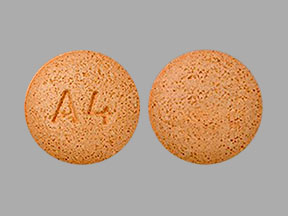
Adzenys Xr-odt Coupons & Savings Card – Discount Prices from $107.04
Brand for: Amphetamine er
My prescription
Edit
12.5MG, Amphetamine ER (30 Tablet Extended Release Disintegratings)
Select pharmacy

CVS
$528.44
COUPON PRICE
Albertsons
$107.04
COUPON PRICE
Walgreens
$170.99
COUPON PRICE
Walmart
$557.72
COUPON PRICEAdzenys Xr-odt savings card
Show this card to your pharmacist
Albertsons
$107.04
BIN
ID
PCN
GRP
011867
LH081F177C
HT
LABH001
Powered by
More prescriptions for weight loss
More prescriptions for weight loss
Price history for Adzenys Xr-odt (brand) & Amphetamine ER (generic)
30 Tablet Extended Release Disintegratings, 12.5MG
Average retail price for Adzenys Xr-odt
Average retail price for Amphetamine ER
Average SaveHealth price for Amphetamine ER
Our price history data is based on aggregated prescription data collected from participating pharmacies in America. Our prescription data updates daily to reflect the latest price changes. If you notice a missing data point, it means there wasn't sufficient data available to generate a monetary value for that date.
Over the last 12 months, the average discount price of Adzenys Xr-odt is $359.72 using the SaveHealth savings card. That's an average savings of 48.55% on Adzenys Xr-odt with our discount card.
*Retail prices are based on pharmacy claims data, and may not be accurate when we don't have enough claims.
Adzenys Xr-odt (Amphetamine ER) dosage forms
Dosage Quantity Price from Per unit 3.1MG 1 Tablet Extended Release Disintegrating $11.25 $11.25 3.1MG 30 Tablet Extended Release Disintegratings $119.88 $4.00 6.3MG 1 Tablet Extended Release Disintegrating $11.64 $11.64 6.3MG 30 Tablet Extended Release Disintegratings $131.64 $4.39 9.4MG 1 Tablet Extended Release Disintegrating $11.64 $11.64 9.4MG 30 Tablet Extended Release Disintegratings $131.64 $4.39 12.5MG 30 Tablet Extended Release Disintegratings $484.20 $16.14 12.5MG 1 Tablet Extended Release Disintegrating $24.84 $24.84 15.7MG 1 Tablet Extended Release Disintegrating $21.03 $21.03 15.7MG 30 Tablet Extended Release Disintegratings $369.90 $12.33
| Dosage | Quantity | Price from | Per unit |
|---|---|---|---|
| 3.1MG | 1 Tablet Extended Release Disintegrating | $11.25 | $11.25 |
| 3.1MG | 30 Tablet Extended Release Disintegratings | $119.88 | $4.00 |
| 6.3MG | 1 Tablet Extended Release Disintegrating | $11.64 | $11.64 |
| 6.3MG | 30 Tablet Extended Release Disintegratings | $131.64 | $4.39 |
| 9.4MG | 1 Tablet Extended Release Disintegrating | $11.64 | $11.64 |
| 9.4MG | 30 Tablet Extended Release Disintegratings | $131.64 | $4.39 |
| 12.5MG | 30 Tablet Extended Release Disintegratings | $484.20 | $16.14 |
| 12.5MG | 1 Tablet Extended Release Disintegrating | $24.84 | $24.84 |
| 15.7MG | 1 Tablet Extended Release Disintegrating | $21.03 | $21.03 |
| 15.7MG | 30 Tablet Extended Release Disintegratings | $369.90 | $12.33 |
| 18.8MG | 1 Tablet Extended Release Disintegrating | $21.04 | $21.04 |
| 18.8MG | 30 Tablet Extended Release Disintegratings | $370.20 | $12.34 |
Are Adzenys and Adderall the same?
Adzenys and Adderall are not the same, but they are similar. Both medications contain amphetamine, which is used to treat attention deficit hyperactivity disorder (ADHD). However, Adzenys is an extended-release orally disintegrating tablet, while Adderall is available in both immediate-release and extended-release formulations. The choice between them depends on individual needs and how the medication is best tolerated.
What is the difference between Adzenys and vyvanse?
Adzenys and Vyvanse are both medications used to treat attention deficit hyperactivity disorder (ADHD), but they differ in their active ingredients and formulations. Adzenys contains amphetamine as its active ingredient and is available in an extended-release orally disintegrating tablet form. Vyvanse, on the other hand, contains lisdexamfetamine, which is a prodrug of dextroamphetamine, and is available in capsule and chewable tablet forms. The choice between these medications depends on individual patient needs, response to treatment, and healthcare provider recommendations.
Is Adzenys XR-ODT a stimulant?
Yes, Adzenys XR-ODT is a stimulant medication. It contains amphetamine, which is used to treat attention deficit hyperactivity disorder (ADHD).
How is Adzenys different from Adderall?
Adzenys and Adderall both contain amphetamine, but they differ in formulation and delivery method. Adzenys is an extended-release orally disintegrating tablet, which dissolves in the mouth without the need for water, providing convenience for those who have difficulty swallowing pills. Adderall, on the other hand, is available in both immediate-release and extended-release capsule forms. The choice between them may depend on individual preferences, specific medical needs, and a healthcare provider's recommendation.
